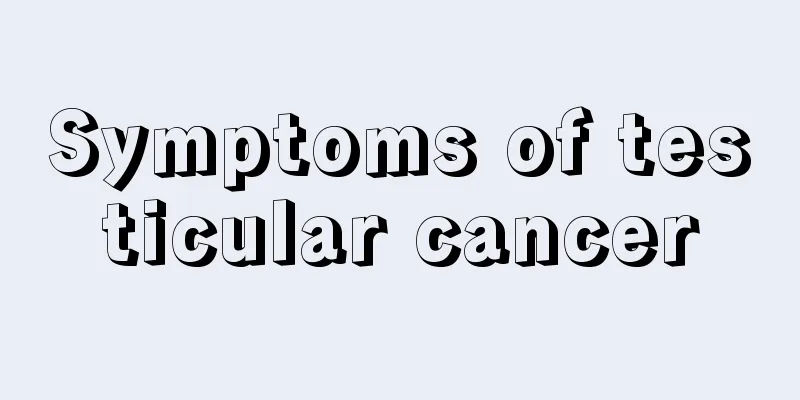What are the three major early symptoms of nasopharyngeal carcinoma and what treatment method is most appropriate?

|
What are the three early symptoms of nasopharyngeal cancer? What is the most appropriate treatment? First: Symptoms of cervical lymph node metastasis: NPC is prone to cervical lymph node metastasis, about 60.3% to 86.1%, half of which are bilateral metastasis. Cervical lymph node metastasis is usually the first symptom of NPC 23.9% to 75%. In a small number of patients, the primary lesion cannot be found in the nasopharynx examination, and cervical lymph node metastasis is a clinical manifestation. This may be related to the fact that the primary lesion of NPC is very small and extends to the submucosal tissue. Second: Nasal symptoms: Because the primary cancer breaks through the surface mucosa and causes runny nose, the nasal secretions often have blood streaks or blood clots, which is more common after getting up in the morning and is one of the early symptoms. When the advanced cancer ulcerates, there may be purulent runny nose or cause a lot of bleeding that is difficult to stop, and even life-threatening. There is no nasal congestion in the early stage, but when the cancer blocks the nostrils, it can cause unilateral or bilateral nasal congestion. Third: tinnitus, hearing loss, ear blockage: When nasopharyngeal carcinoma occurs in the lateral wall of the nasopharynx, the lateral fossa, or the upper lip of the Eustachian tube opening, the tumor compresses the Eustachian tube, which may cause unilateral tinnitus or hearing loss or catarrhal otitis media. Unilateral tinnitus or hearing loss is one of the symptoms of early nasopharyngeal carcinoma. What is the most appropriate treatment? The commonly used treatment method is radiotherapy. Conventional radiotherapy has many complications. Three-dimensional conformal or enhanced radiotherapy is recommended. The total irradiation dose to the nasopharynx is 66~70Gy/6.5~7 weeks, the radical dose for positive cervical lymph nodes is 56~60Gy, and the preventive irradiation dose for negative cervical lymph nodes is 46~50Gy. Chemotherapy, traditional Chinese medicine, and immunotherapy can be used during radiotherapy to improve the efficacy. Comprehensive treatment methods such as chemotherapy and surgery can be used for some advanced patients and recurrent cases after radiotherapy, as well as a small number of adenocarcinomas and squamous cell carcinomas that are insensitive to radiation. |
<<: How to prevent and care for nerve damage caused by complications of nasopharyngeal carcinoma
>>: Indications and options for chemotherapy for gastric cancer
Recommend
What should I do if my underwear is not washed and has bugs?
Some experts say underwear is the dirtiest part o...
The navel is red, swollen and leaking water
Although the belly button is very small, it is al...
How do patients with nasopharyngeal carcinoma maintain themselves and what treatment methods are there?
How do patients with nasopharyngeal cancer mainta...
Is renal hamartoma harmful and serious?
Renal hamartoma is generally benign, but it may c...
Quick treatment for colds and flu
Cold is a disease that we often encounter in our ...
When is Guyu
China is divided into four seasons, spring, summe...
What is the reason for sweating a lot in the middle of the night
Most people believe that sweating has the effect ...
Is okra effective in improving sexual performance?
I believe everyone has heard that okra can improv...
Why do I have dry mouth every afternoon?
Many people feel dry mouth and always have to dri...
Never hit a child with the same thing
Is it okay to hit a child with chopsticks? A frie...
Complete collection of massage techniques for the elderly
As people age, their bodies become more and more ...
Drugs for mature ovarian teratoma
Teratoma is a gynecological tumor disease that is...
What causes enlarged pores on the nose?
Many people will find that there are many large p...
How long can a denture last
If there is a problem with teeth, it will have ma...
What causes malignant bone cancer
The occurrence of malignant bone cancer may be re...









